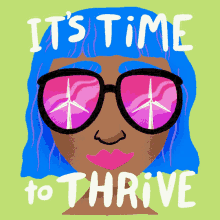What Is Resistance Training Actually For?
Resistance training is the umbrella term for any kind of exercise where you challenge your muscles against some kind of resistance. That resistance could be in the form of dumbbells, kettlebells, barbells, weight machines, or your own bodyweight.
There are many different ways to practice resistance training. Strength training focuses on building the ability to move heavy things, using heavy weights and exercises like squats and deadlifts. Bodybuilding (also known as “hypertrophy” training), focuses on increasing muscle size and usually uses moderate weights and more exercises that isolate specific muscles. Muscle endurance training makes your muscles more fatigue resistant, using lighter weights and more reps.
No matter which type you choose, resistance training involves much more than simply changing the muscles themselves. It improves a lot of different parts of the body and mind.
It’s so powerful that I believe that resistance training is one of the best things anyone can do for their physical and mental health. But when I speak to people about it, I sometimes get some pushback. That pushback tends to come from two very different types of people.
On one side are people who don’t believe that they should be lifting weights at all: “I’m not trying to be a bodybuilder”. “I don’t want to get too muscular”. If that’s you, rest assured that building significant muscle takes years of dedicated effort. It doesn’t happen by accident.
On the other side are people who think that resistance training needs to be optimized strictly for building muscle mass. One of these guys (they’re not always men but this one happened to be) sent me a series of truly unhinged messages in response to an article I wrote about the importance of lifting heavy weights. In his opinion (which he angrily stated as a fact), moderate weights are better for building muscle. Those people insist that there’s a “right way” to lift weights, and that right way is a bodybuilding program that targets physical appearance and body composition changes. If that’s you, please don’t message me!
In both camps, these people are focused primarily (or exclusively) on resistance training as a way to build muscle. And they’re wrong.
There’s so much more to it than that.
Just Some of the Research-Backed Benefits of Resistance Training:
Increased strength (strength and muscle size are not the same thing)
Greater bone density
Slower cellular aging
Increased muscle size
Improved insulin sensitivity and blood sugar control
More independence and better daily functioning
Lower blood pressure
Improved cholesterol levels (increased HDL and decreased LDL)
Decreased risk of falls
Reduced risk of dozens of chronic diseases
Stronger and more efficient nervous system
More energy
Boosted metabolism
Reduced symptoms of anxiety and depression
Greater resilience to stress
Improved brain function
Better body composition (more muscle and less body fat)
Improved coordination
Increased mobility
Improved self confidence
Longer life
Better sleep
Less pain
To learn more about the evidence for the positive effects of resistance training, here’s a peer-reviewed journal article: Resistance Training is Medicine.
These are incredibly valuable benefits that can improve your quality of life both in the short term by giving you the resources to be able to live your best life each day, and in the long-term by keeping your organ systems healthy and preventing debilitating diseases or accidents. And only three things on this list are primarily related to increasing muscle mass.
So, if you’re a bodybuilder or someone focused on building as much muscle as possible, you should be doing resistance training. If you’re an older person who wants to stay independent, increase bone density, and reduce the risks of falls, you should be doing resistance training. If you’re someone who wants to sleep better and have more energy, improve your mental health, feel strong and self-confident, and/or live a long and healthy life, you should be doing resistance training.
And if you decide to start resistance training, there are many styles of training that can help you achieve those goals. It’s not just about bodybuilding and muscle size.
More Resources
If you want to learn more about strength training, which is a type of resistance training, here are some other articles I’ve written:
Mental Health Benefits of Strength Training
Why You Need to be Strength Training
What is Strength Training and How Do You Get Started
If You Need Help
My FREE Strength Training 101 eBook will teach you which exercises to do, how to choose the right weights, and how to make progress as you get better at lifting weights.
For more personalized assistance, contact me! I create personalized resistance training programs for each client, delivered either during one-on-one personal training sessions or via an app for you to do on your own.


